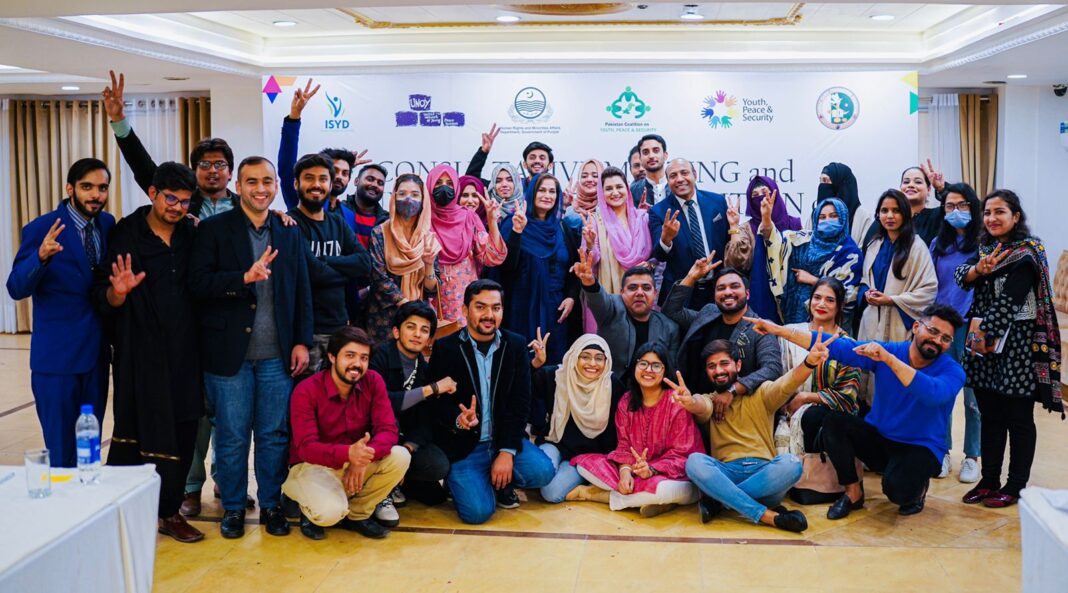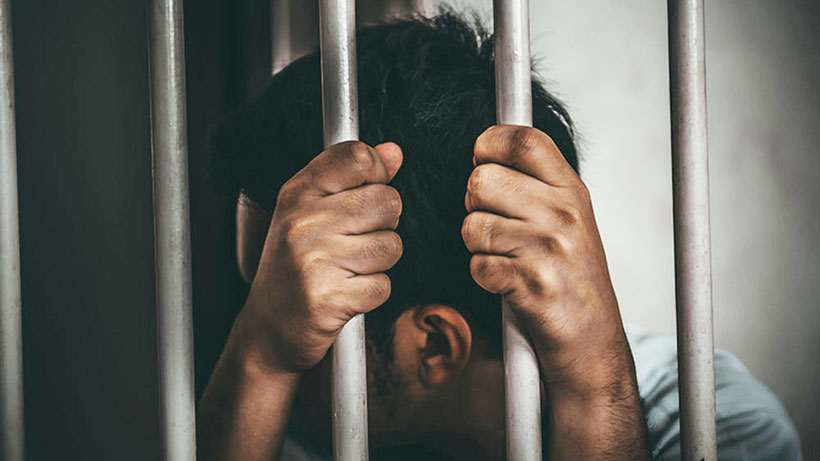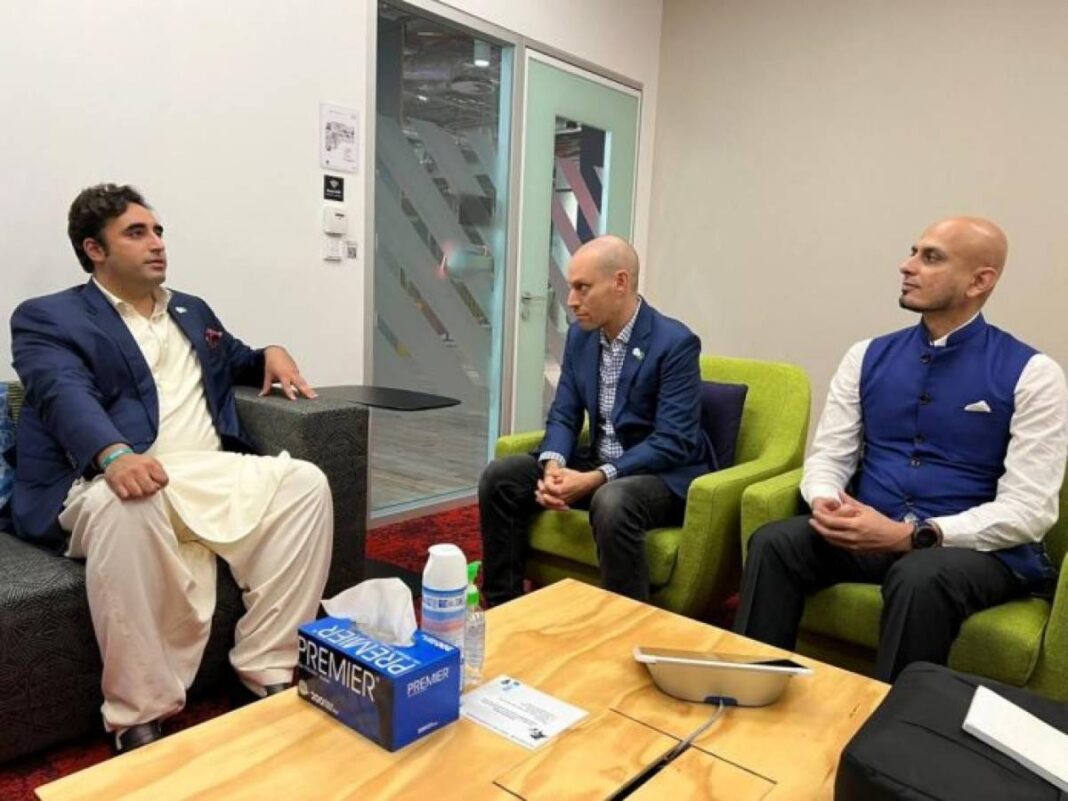NEWS DESK/STAFF REPORTER
LAHORE: Institute of Social and Youth Development (ISYD), Human Rights and Minorities Affairs Department (Government of Punjab), Asia Youth Advocacy Team of United Network of Young Peacebuilders (UNOY) and Samaj Sewa Foundation Pakistan launched the first-ever national-level alliance on, “Pakistan Coalition on Youth, Peace, and Security (YPS)” in Lahore to promote and implement UNSCR 2250 on YPS in Pakistan featuring participants from outstation as well from Lahore.
The PCYPS was launched by the Honorable Ms. Rafia Kamal Butt – Chairperson, Punjab Women Protection Authority, Ms. Sania Kamran – Member Provincial Assembly (MPA) and Prof. Dr. Shahzad Ansar – Director Global Developments & Academics at “IFGF College of Leadership” and a prominent scholar in the industry of Translation Studies.
The consultation and launch event was joined by different young peacebuilders, peacebuilding organizations, academia, researchers, Lawyers and Government officials to join hands together on Youth, Peace and Security in Pakistan through different components of UNSCR 2250, which was started by Mr. Joshua Dilawar from Institute for Social and Youth Development (ISYD) putting light upon the importance of youth engagement in peacebuilding and youth as initiators and decision-makers to bring positive and substantial change in society.
The Proceedings of the meeting included a panel discussion, which was moderated by Ms. Jayaa Jaggi, Human Rights Activist and Member of the Asia Youth Advocacy Team of UNOY from Pakistan, on how to better channel the efforts of the greater population of Youth in promoting peace and the role that youth can play in spreading peace. Moreover, recommendations were given by young peacebuilders to implement YPS and would be included in 2023 workplan of ASIAYAT-Pakistan while effective mechanisms which the masses with the collaboration of Govt. can adopt and help mitigate the conflicts were discussed as conflict prevention and resolution is more sustainable when young people’s perspectives are prioritized. Engaging young people and youth community leaders in peace efforts, decision-making, and institutional reform processes provide an opportunity to constructively influence areas that directly impact their lives. Furthermore, recommendations were developed and well taken by all the participants for the Government departments to spread awareness of Pakistan UNSCR 2250 and to make sure of its implementation.
UNSCR 2250 (2015) identifies five key pillars for action: participation, protection, prevention, partnerships and disengagement, and reintegration. This landmark resolution urges Member States to give youth a greater voice in decision-making at the local, national, regional, and international levels and to consider setting up mechanisms that would enable young people to participate meaningfully in peace processes. It was a milestone in the international community’s affirmation that youth play a significant role in realizing global peace and security. While youth has previously been depicted as victims, targets, or perpetrators of violent conflict, UNSCR 2250 represented a shift in discourse toward youth as peacebuilders and agents of change capable of preventing, mitigating, and resolving conflict in their communities. Studies have demonstrated that including and partnering with young people helps foster a more sustainable peace. However, despite continued support from the U.N., and grassroots efforts to encourage inclusive representation of youth in decision-making, there remain structural barriers that prevent youth from contributing to YPS on national, regional, and local levels.
These kinds of consultative sessions will benefit society in terms of promoting interfaith harmony and peace. Successful peacebuilding activities create an environment supportive of self-sustaining. Durable peace; reconcile opponents; prevent conflict from restarting; integrate civil society; create rule of law mechanisms and address underlying structural and societal issues.








